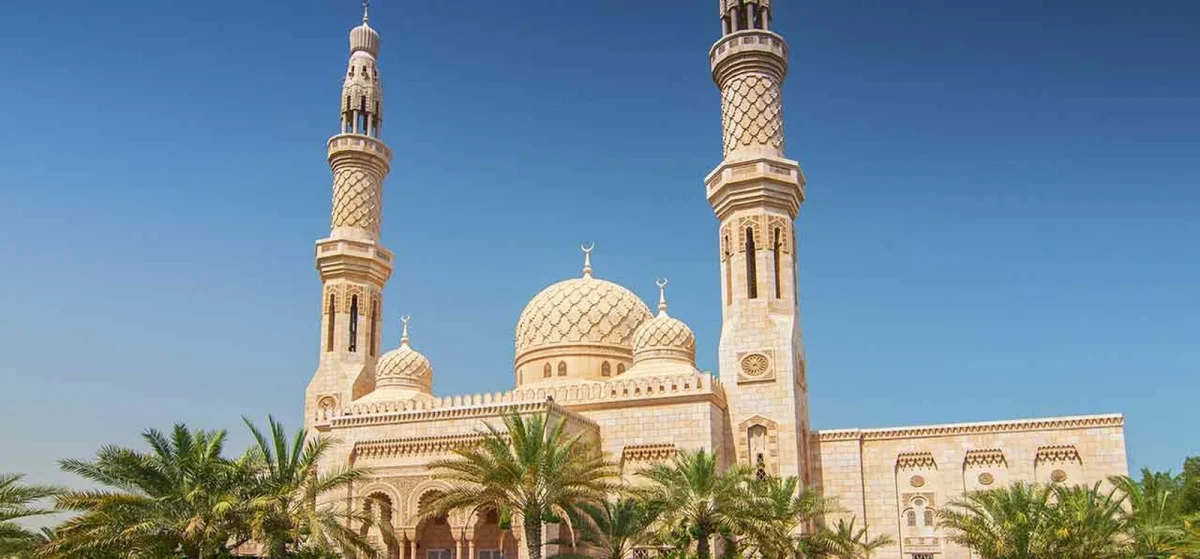
Rules of Conduct and Cultural Respect during Ramadan as a Guest of the UAE
Ramadan is a significant period in the Islamic calendar, revered by Muslims worldwide as a month of fasting, prayer, and reflection. Interestingly, Dubai and the UAE embrace this month with traditional observance and modern adaptation.
Ramadan commemorates the revelation of the Qur’an to the Prophet Muhammad. It lasts 29 to 30 days, beginning and ending with the sighting of the crescent moon. The exact dates vary each year; a special moon-sighting committee determines the holiday term.
During Ramadan, Muslims abstain from eating and drinking during the day. After sunset, they break the fast at the festive iftar meal. Another meal Muslims take during Ramadan is suhoor, consumed early in the morning before sunrise.
Ramadan in the UAE
In the UAE, community spirit is front and center during this time with activities and traditions that reflect the values of empathy, charity, and spiritual growth. Muslims engage in charitable giving and family gatherings, while non-Muslims are encouraged to participate in cultural events and honor local customs.
What do numbers say on the subject? Around 74.5% of the United Arab Emirates population professed Islam in 2020. What’s more, among UAE citizens, nearly all are considered Muslim and the constitution designates Islam as the official religion of the country.
Reports indicate that 96% of Emiratis actively participate in Ramadan, with most families preferring to celebrate at home and dine with family. Food delivery services are picking up steam among younger generations: 29% of Emiratis use local food services and delivery platforms during Ramadan.
Businesses often adjust their hours during Ramadan to accommodate fasting schedules. Restaurants may remain open for non-Muslims. However, they will provide designated dining areas away from public view for non-fasters to dine discreetly without disturbing those observing the fast.
Additionally, hotels frequently offer special iftar buffets to celebrate the breaking of the fast each evening.
Essential Guidelines for Non-Muslims
Non-Muslims are strongly encouraged to respect Islamic customs during Ramadan since it fosters mutual respect and understanding between cultures. Violating these rules may lead to fines or legal consequences.
Expats and non-residents who break the below-mentioned rules may face a fine of up to AED 2,000 ($544.52) or even imprisonment.
Eating and Drinking
Non-Muslims in the UAE are not required to fast but are expected to show respect for those who do.
Refrain from eating, drinking, or chewing gum in public during daylight hours. This applies to cars and public transport too.
Doing so in public during daylight hours of Ramadan is considered a punishable crime. This applies to both Muslims and non-Muslims, regardless of faith. The law is based on Article 313 of the UAE’s Federal Penal Code.
Non-Muslims should eat discreetly in private spaces rather than in public areas. Children are exempt from this rule.
Dress Code
Modest attire is recommended; revealing, tight-fitting, or transparent clothing should be avoided.
When moving through public spaces, such as streets, shopping malls, or restaurants, dress modestly to respect the cultural norms during Ramadan. We would advise foreign guests to cover their shoulders and knees.
If you are in the UAE on holiday, please note that public beaches, beach parks, and hotel pools are open as usual, so you can continue to wear ordinary swimsuits and bikinis in these areas. Make sure, however, to change your clothes before leaving these designated areas.
Respectful Conduct
Avoid loud music, smoking, loud conversations, offensive language, aggressive or disruptive behavior, public displays of affection, and any behavior that could be seen as disrespectful to those observing Ramadan.
Smoking is allowed in specifically designated smoking areas. But before taking out a cigarette, make sure you are not in a public space and there is a special sign permitting smoking!
Moreover, dancing in public and refusing a gift are also considered inappropriate.
Workplace Adjustments
Working hours are reduced during Ramadan, and non-Muslim employers should adopt these changes for Muslim employees.
Companies are required to provide a dining room for the employees who don’t fast, which should be out of sight of Muslims.
Employers should also provide suitable facilities for prayer and breaks for employees to break their fast.
Community and Compassion: The Essence of Ramadan
Throughout the month, many community events are organized where everyone—regardless of their background—can participate in the rich tapestry of Ramadan festivities. This year, Ramadan markets and festivals will welcome visitors in trade and exhibition centers across the country.
Cooking classes for Ramadan dishes, such as samosas and biryani, exhibitions showcasing Islamic art, and family-friendly activities will be held to celebrate the holy month.
Non-Muslims are welcome to join iftar meals, which can be an enriching experience that fosters cultural understanding. If you accept an invitation to dine with a family during iftar, express your gratitude and appreciation for their hospitality by arriving on time and engaging warmly with your hosts.
Charitable activities are also encouraged during Ramadan.
What UAE Visitors Should Know
- Remember to book a table for dinner in advance. Restaurants will be busy during the evenings.
- You might find it difficult to book a taxi during the evenings, as many drivers would be breaking their fast. It is better to use other means of transport.
- Tourist attractions may adjust their hours during Ramadan, so it is recommended that you check opening hours beforehand.
- The shopping centers may stay open longer than usual during this period.
- Refusing an invitation to join someone at iftar is considered rude. If you are invited, we suggest you accept it. Bring a small gift, such as a dessert or a box of sweets, to show respect and gratitude to the hosts.
- Don’t be surprised if your local friends or coworkers of the opposite sex refuse to shake hands or hug during Ramadan, as Muslims follow these rules very strictly.
- The roads may be busy in the evenings since people will return home to break their fast. It would be convenient for non-Muslims to wait half an hour to give fasters time to reach their homes. Drive with caution and avoid speeding, especially at twilight.
- If you have Muslim friends who are fasting, avoid using strong language on social networks or sharing images that might be considered inappropriate.
Visiting the UAE during Ramadan means experiencing the hospitality and openness of the locals. Don’t hesitate to book your holiday or business trip during that time but make sure you’ve familiarized yourself—and your co-travelers—with the restrictions and etiquette rules.
If you are planning a vacation in Dubai, consider checking out the greenest areas across the city. And in case you are looking for a real estate agency with expertise in closing deals during Ramadan, contact us to learn the details!


